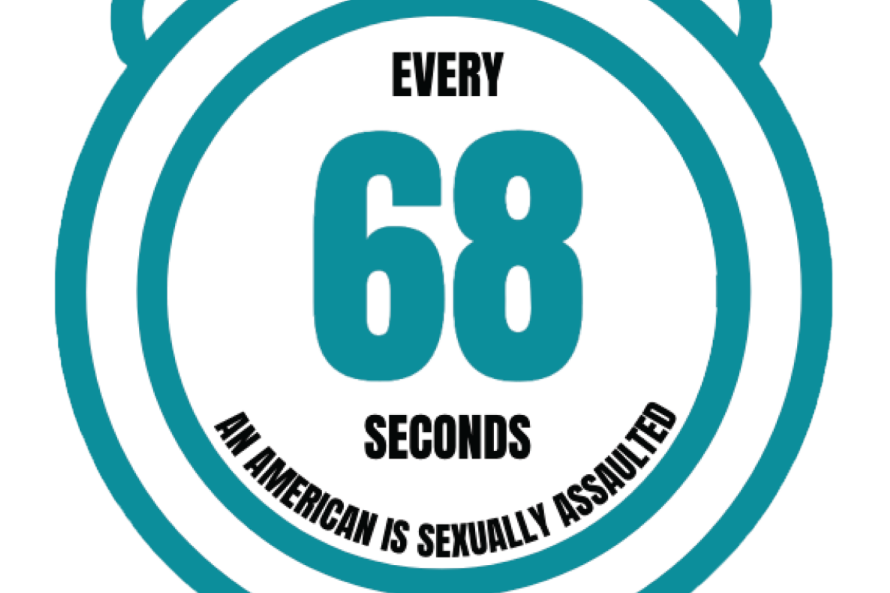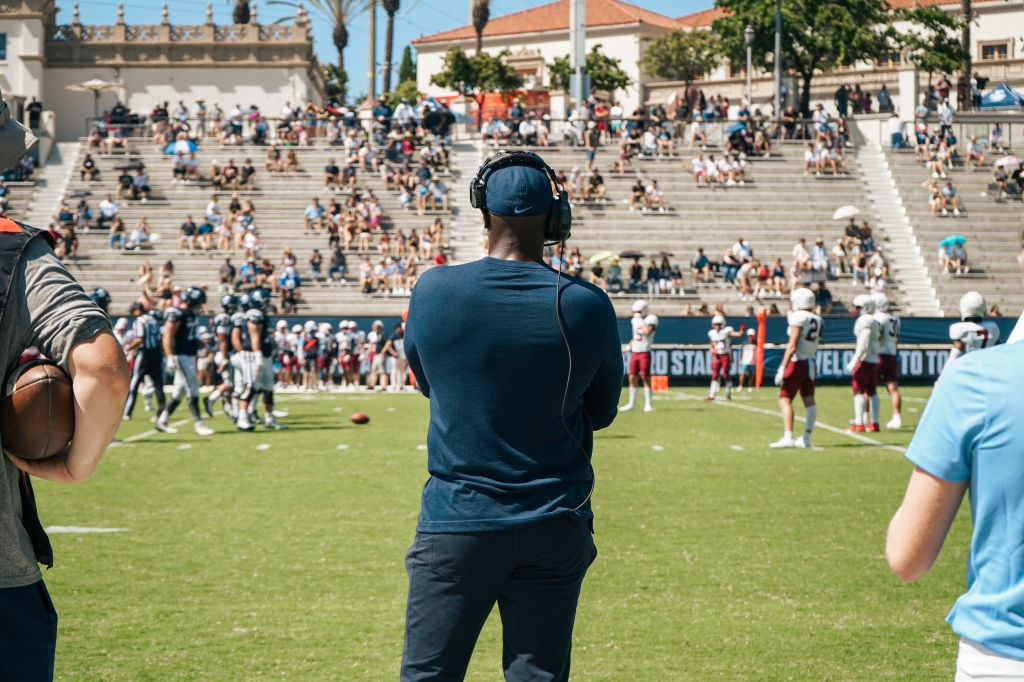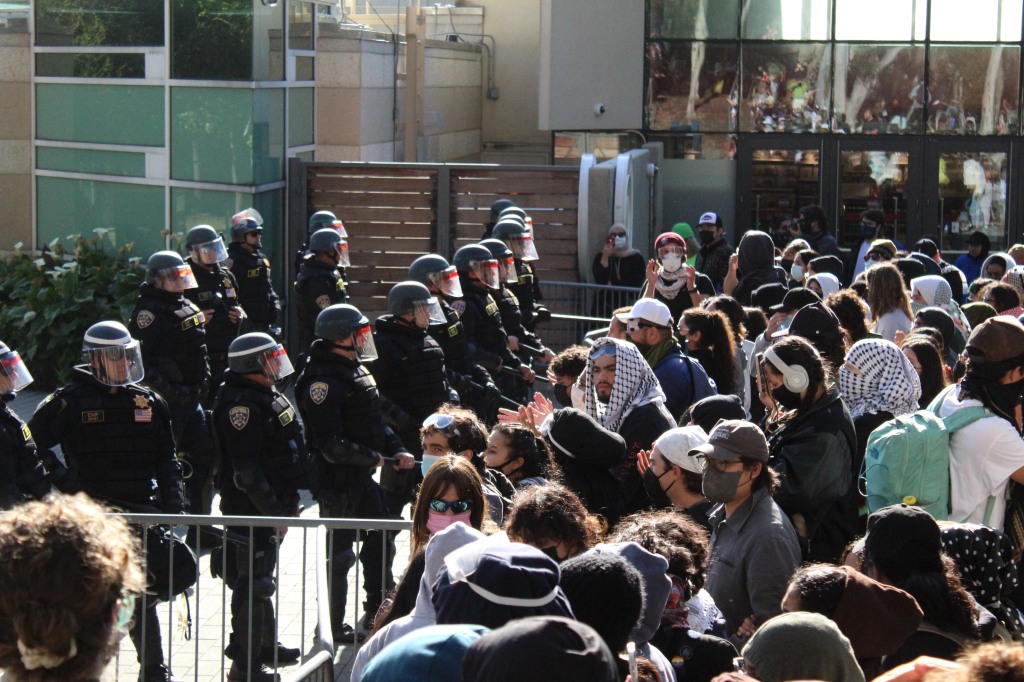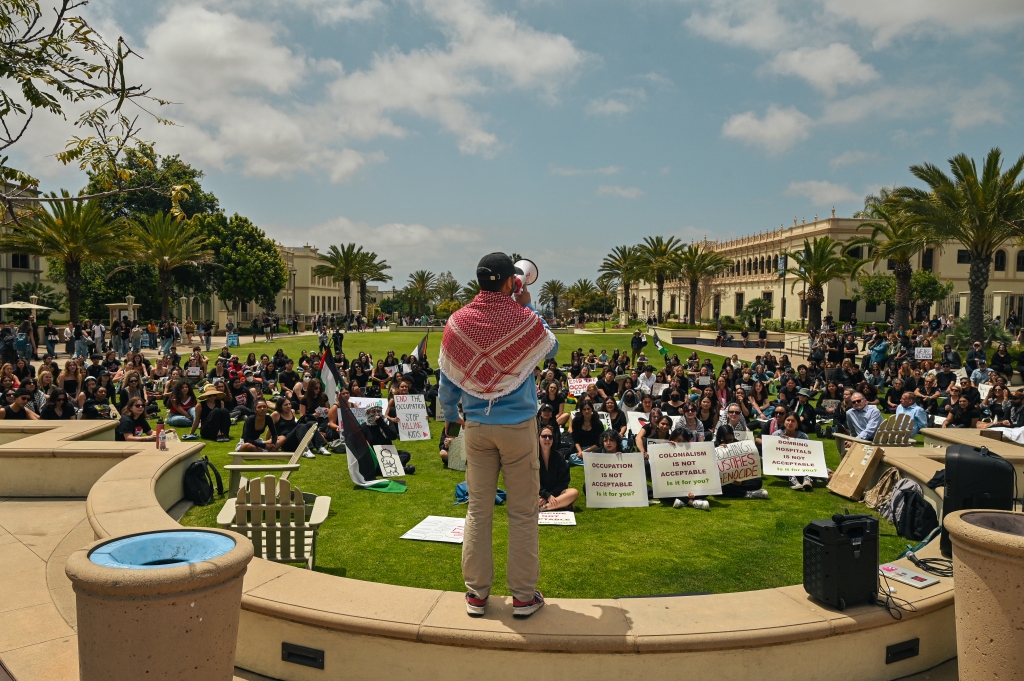Katie Foreman / Feature Editor
April marks Sexual Assault Awareness Month (SAAM); this is a time to not only bring visibility to the issue of sexual assault, harassment and rape, but also to hear survivors’ stories to become more educated on sexual assault prevention. While these are difficult conversations to partake in, they are also relevant to have, even after April ends.
By opening up a door for sexual assault to be talked about, there can be a better understanding of survivors and what they have faced. Rape, Abuse & Incest National Network (RAINN) published that in the U.S., there are around 463,634 survivors (age 12 or older) of rape and sexual assault every year, with the most risk being for people aged 12-34. As college students, SAAM can be a month to better inform people about what sexual assault and rape is, as some survivors might not know how to define what they experienced until a they’ve been educated on these topics.
Toreros helped shed light on this serious issue, discussing why SAAM is important to them. USD senior Adriana Ventura spoke on the meaning of this month..
“It’s really important that people are able to have a time where they can speak about these topics that are very taboo, and are able to share these stories that they may not feel comfortable sharing otherwise,” Ventura said. “It just opens up that conversation that is really important and allows people to talk about socially how we can change things and how we can change policy and things like that. I also think it allows us to share the stories of what happens when we don’t raise awareness.”
USD senior Liv Valdez reflected upon the significance of this month.
“This month is really important to me because I know so many survivors of sexual assault,” Valdez said. “Every day I’m grateful that those people are still in my life and have survived to be able to tell the tale and continue to fight and continue to be an inspiration to others that this is happening to.”
Valdez elaborated on why she believes everyone should care about SAAM.
“It [SAAM] brings so much light to survivors and people that need to or want to share their stories and come forward.”
Ventura shared that this month is an opportunity to speak about consent and why it is necessary.
“For college campuses, because of the fact that we’re all very young and we’re growing into ourselves, it’s really important to learn about boundaries — about respecting other people’s boundaries and respecting your own boundaries, and especially how to set boundaries,” Ventura explained. “When it comes to consent, it’s important [because] it teaches people about setting and respecting boundaries.”
Expanding on why consent is essential for safety of all parties involved, Ventura offered insight on what these boundaries may sound like.
“‘No’ means no, but ‘maybe’ also means no, or ‘I don’t know’ also means no, or ‘can we just kiss’ means we’re just gonna kiss, and that’s it.”
In other words, even if someone consents at first, they can stop it and take back their consent at any time, and giving your consent to someone once does not make that consent indefinite, or permanent.
Ventura also asserted that there’s more to this type of conversation: listening to survivors.
“Allowing people to share their stories is probably the most effective way to get people to empathize with victims and understand what it’s like to be in that situation. Because we talk about ‘fight, flight and freeze,’ and in a lot of peoples’ situations, a lot of people’s reaction [to being assaulted, harassed or raped] is to freeze up. And a lot of people are not socialized to fight either… Just because you think you would be comfortable fighting in that situation… people get scared and peoples’ brains don’t know what to do. You can’t really control that.”
Campus Assault Resources and Education (CARE) Associate Director of Prevention and Education, Sarah Diamond, communicated her knowledge and perspective on sexual violence.
“Sexual violence is more than the legal definition of rape and when we only talk about sexual violence as ‘rape,’ we are erasing and invalidating the many forms of sexual violence that exist. This makes it much harder for victim-survivors to come forward about their experiences and access the resources they need,” Diamond said. “It’s also important for students to know that sexual violence is never the victim-survivor’s fault — no one asks to be sexually assaulted, and being under the influence or wearing revealing clothing never indicate consent. Additionally, it’s important to know that people’s response to this type of traumatic event can vary, and each response is valid and normal.”
As an advocate for sexual assault awareness and prevention, Diamond discussed her own feelings toward this month.
“To me, SAAM can be a time for healing and recognizing that many of us have been or know someone who has been impacted by sexual violence; it can help shed light on this serious form of harm, so those impacted by harm know they are not alone. I think there is a lot of power in healing communities together, and SAAM provides that opportunity.”
Diamond also brought up ways in which everyone can prevent sexual violence and begin to change the dialogue around sexual assault, harassment and rape.
“We all have a role to play in ending sexual violence. We can do this by learning healthy communication skills in order to communicate about our boundaries, asking for consent in non-sexual situations so it becomes more comfortable during intimate acts, breaking down myths about sexual violence; for example… ‘it only happens to women,’ intervening when someone says something that perpetuates rape culture [societal and cultural norms around sexual violence] and believing survivors when they come forward about their experiences and supporting them in their decision making. By doing these things, we can help cultivate a culture of consent and care here at USD.”
“Rape culture” is the way society normalizes conversations, attitudes and expectations around sexual harassment, assault and rape; it furthers the idea that sexual violence is somehow the survivor’s fault and is to be expected.
Valdez emphasized the way that rape culture encourages jokes around sexual violence.
“Sexual assault is obviously not a joke… in whatever media we’re consuming, it can be a joke so often or pushed aside,” Valdez said. “I’m so tired of hearing it as a joke… I just really think it’s important that we take the time to really think about the severity of situations like that, instead of thinking about things lightheartedly because it makes us uncomfortable.”
Ventura, Valdez and Diamond spoke on an aspect of this issue that doesn’t always get addressed: sexual assault can happen to any gender or sexual orientation.
“Sexual violence is a serious form of harm that impacts many people across all socio-economic statuses, races, ethnicities, genders, sexual orientations, religions, abilities and other identities; it is not a cisgender woman’s issue,” Diamond said.
There are multiple options for care and support at USD for students who have faced sexual violence.
“For students who have been impacted by relationship violence, we offer both confidential and private options to students,” Diamond said. “Our Confidential CARE Advocate is available to consult with students to learn more about their options, help a student with accommodations, and help begin the reporting process, if the impacted student wants to.”
Confidential Care Advocates can be reached by calling the Student Wellness Center at (619) 260-4655 and asking to speak with a Confidential CARE Advocate. For more confidential options, there is the Counseling Center on campus and Pastoral Clergy in University Ministry. The Title IX office (titleix@sandiego.edu) and Department of Public Safety (619-260-2222) are available to assist students in reporting their case.
Sexual assault, harassment and rape are never your fault. From one survivor to another, you are not alone. Your story and your pain is valid. Dealing with sexual violence can be a terrifying experience but know that you are loved, and there are multiple paths for receiving support, including the resources in this article. Your voice is powerful and worthy of being heard. You are so much stronger than you know.





Leave a comment